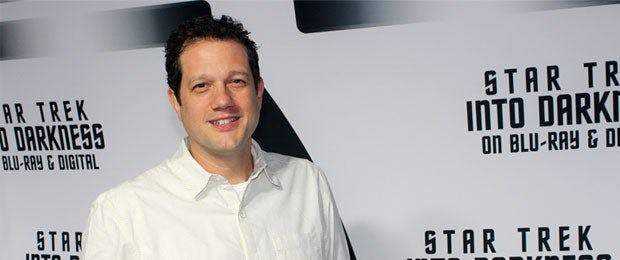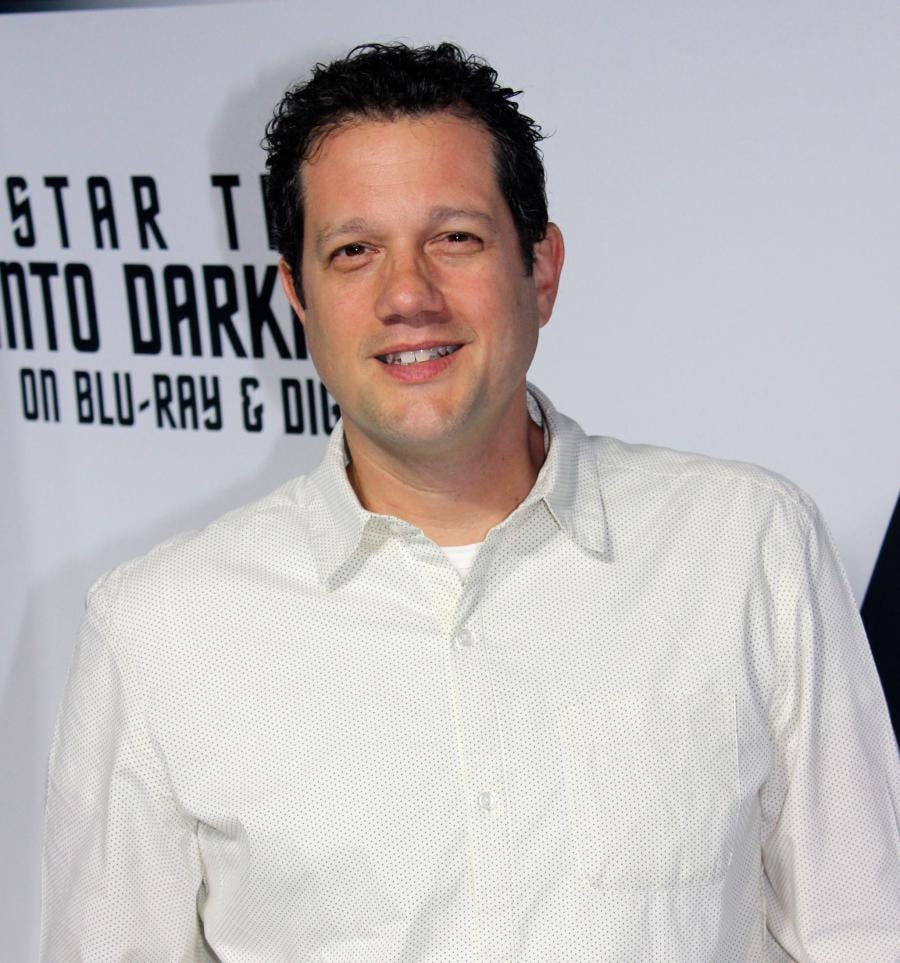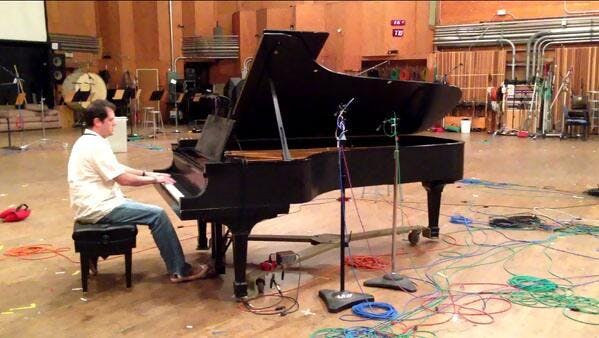Published Sep 17, 2013
Michael Giacchino Talks Scoring Star Trek
Michael Giacchino Talks Scoring Star Trek


You’ve worked with J.J. Abrams on a regular basis, but this film is a sequel. In what ways did that alter the process?
GIACCHINO: I feel like everybody sort of had their bearings down. Everyone understood what they were doing, whereas before, on the first one, everybody was trying to figure out, “Well, what are we making? What’s our tone? What’s appropriate? What’s not appropriate?” We were thinking about all those things and trying to figure out how to make it work. This one was a little bit more freeing. It felt like, “OK, we’ve got a lot of the fundamental stuff down, and now we can just build on that.” That, speaking for myself, was a very freeing experience. I had a blast on this one. That’s not to say I didn’t have fun on the first one, but I feel like the first one was more difficult.
How different, in general, is Star Trek from anything else you’ve ever scored?
GIACCHINO: It is different because it is a massive franchise with a huge fan base. So you always have that in the back of your head. Star Trek is something that I grew up with and loved as well. So not only do I not want to disappoint myself, but I don’t want to disappoint other people who love it as well. So you’re always struggling with that, though, in the end you just have to do whatever you think is best for this particular script, this particular story, for this particular movie. Also, you have to let go of what was and deal with what is.
How much interest do you personally take in something like the Blu-ray, in terms of it delivering theater-quality sound?
GIACCHINO: Well, Andy Nelson, who mixed the music into the film, is amazing. I always know whatever he does will translate great onto the Blu-ray. It’s an amazing thing now, because you can basically have a movie theater in your home. It’s crazy, right? And I love that. We’re always watching movies at home. I don’t really go to the Blu-ray mixes, but I just know that Andy does a great job and that if it sounds great there, when they’re doing the mixes (for the film), it will sound great on the Blu-ray.

To you, is music a lead actor or a supporting player?
GIACCHINO: I tend to think of the music as one of the characters. It’s another character in the movie. It’s sort of that character that sits there and gently nudges you and says, “You need to feel this” or “You need to notice this.” It’s sort of the subtext of everything that is going on. I can take a picture of you starting at me, and I can score that any number of ways, and I could show those versions to people, and they would think either, “You’re plotting to kill me” or “You’re really happy right now.” There are so many different things involved, but it’s all within how you play the scene, how you score it. It’s actually a very dangerous tool to have. Brad Bird once told me, “Now, you’re going to have to be very careful.” It was on The Incredibles, the first time I worked with him, and he said, “Your music can ruin my movie.” And he was right. What he meant was that if you’re not totally right on target, then the audience will thinking something that he doesn’t want them thinking. So you’ve got to be careful.
You used the iconic Star Trek music for the end credits of Star Trek Into Darkness…
GIACCHINO: We used it in the end credits because I feel like every time we’d go and try to use it (elsewhere in the film), it would stand out too much. It called attention to itself.
So you did try. That’s interesting…
GIACCHINO: Oh, yeah. Yeah, yeah, yeah, we did try, but it always pulled away from what the story focus was, and that’s the last thing you want to do. It’s great to sit there and go, “Oh, we could just play the theme,” but it’s not about that when you’re working on these things. You want to make sure that the story is front and center. You don’t want to distract people in any other way. But we always knew that, come the end credits, we could do it the hugest way possible and then just have a lot of fun with it.
How excited are you to have your two Star Trek scores performed in London next year at Star Trek – Live in Concert and Star Trek Into Darkness – Live in Concert?
GIACCHINO: Oh, I can’t wait. I just think that’s going to be a blast. We did it in Switzerland last year and had so much fun doing it. The audience loved it and it was just an incredible experience to see the film that way, to see it with the orchestra playing alongside the film. Just to see the reaction people had to the characters, it was wonderful. You really can’t go to drive-in movies anymore because they really don’t exist now. So this is sort of the new version of that, where you can go and there’s something very live about it. It’s also a tightrope walk because anything can happen. You can have technical problems that mess up a cue. Anything can happen. So it’s a very nerve-racking but fun night.
What else are you working on?
GIACCHINO: I’m working on Jupiter Ascending with the Wachowskis. I’m about to work with Matt Reeves on Planet of the Apes. And then I’ll be working on Tomorrowland with Brad Bird.
You’re a busy man…
GIACCHINO: Yeah, it’s a little crazy.
Last question: How tricky is it to, in a sense, have three scores rattling around your head more or less simultaneously?
GIACCHINO: They’ll be spread out a bit. But there have been periods where I have had to do three movies at a time. I’m just really lucky that I’m good at compartmentalizing as far as when I’m working on something, that’s what I’m working on, and nothing from this project seeps into that project. I try to create very unique sorts of characters for each movie. So each film score hopefully only fits that movie. That’s the goal. That’s what I always try to do.

